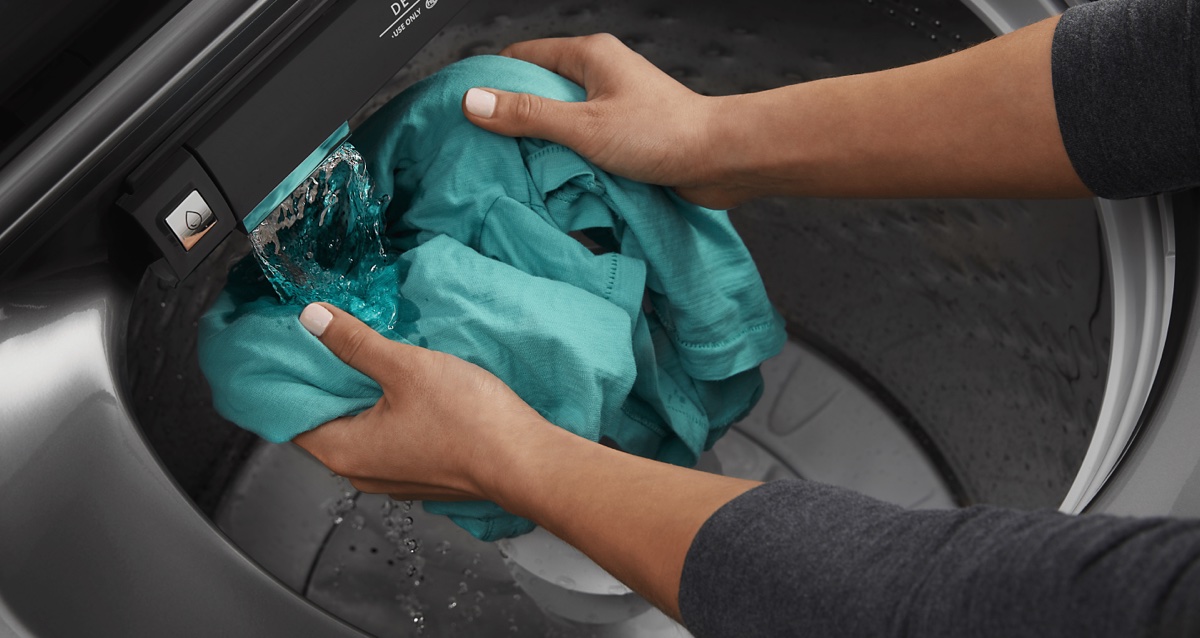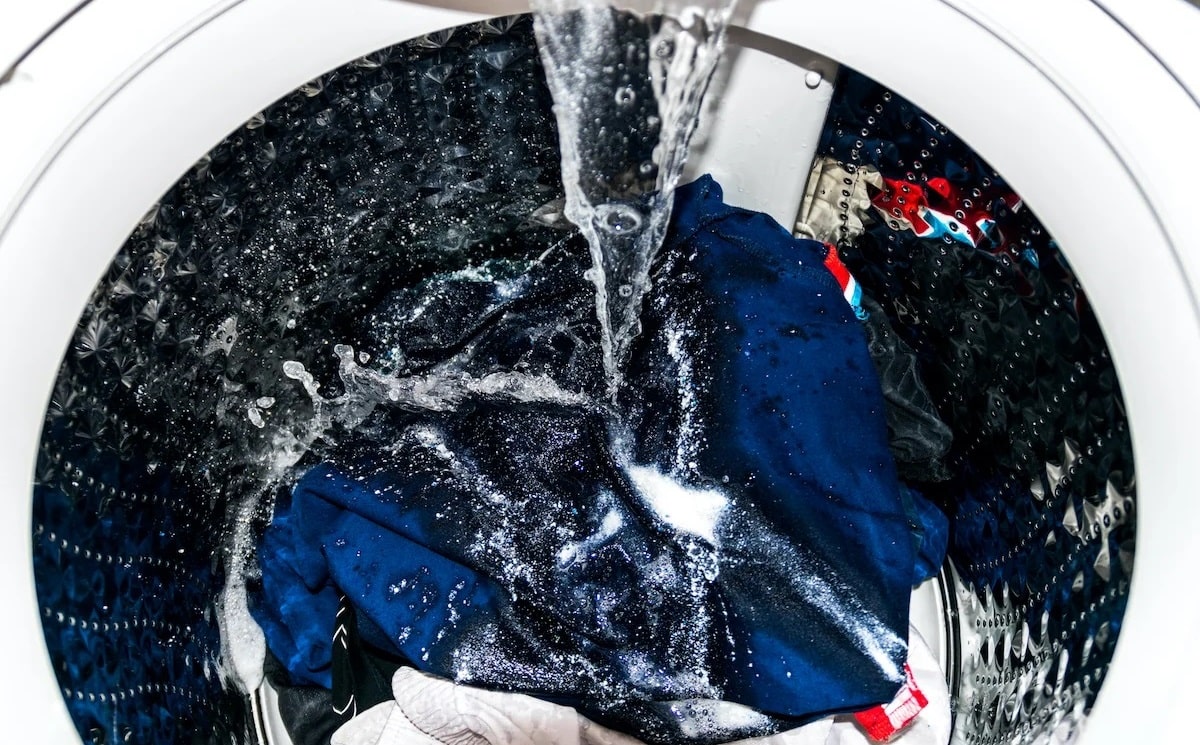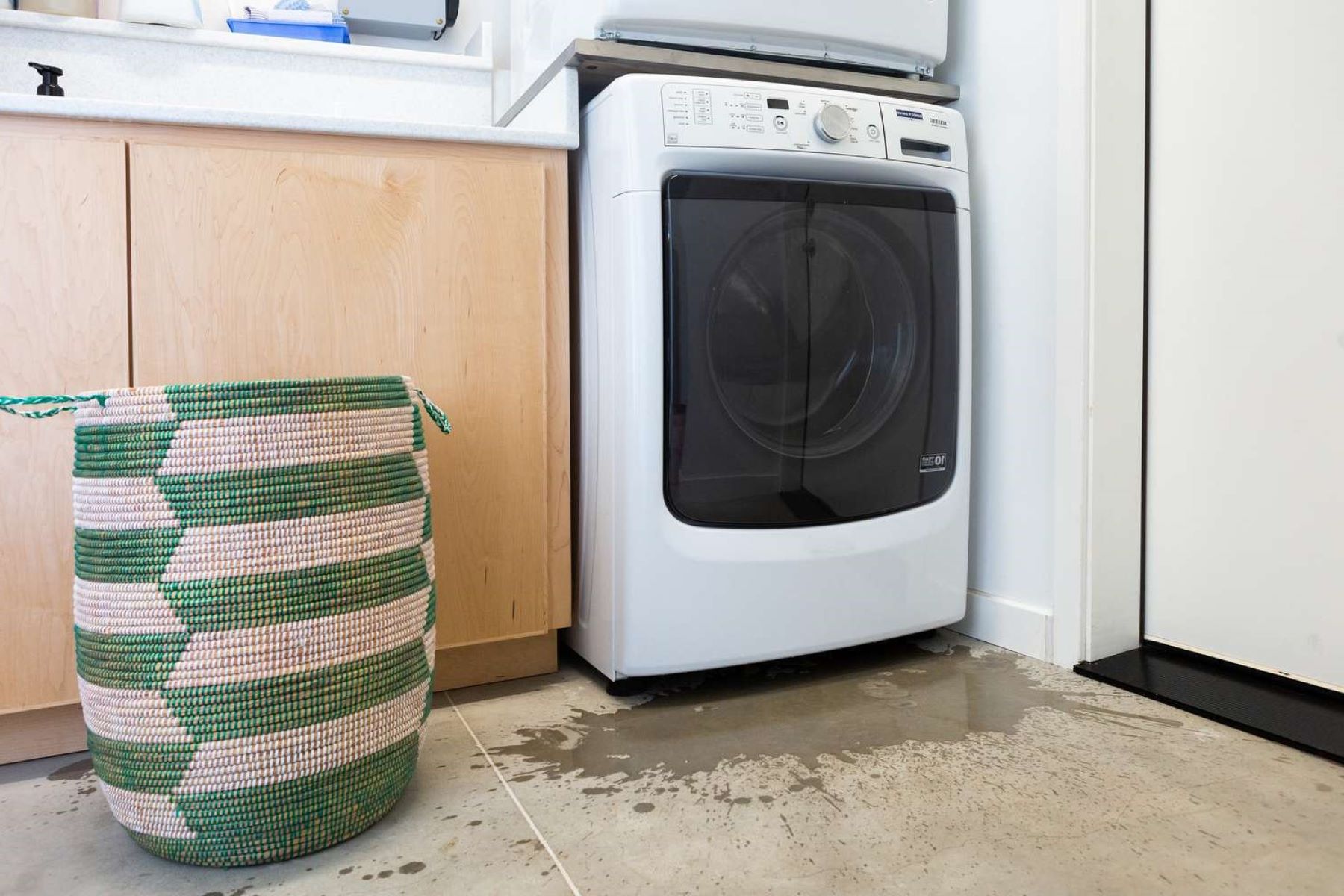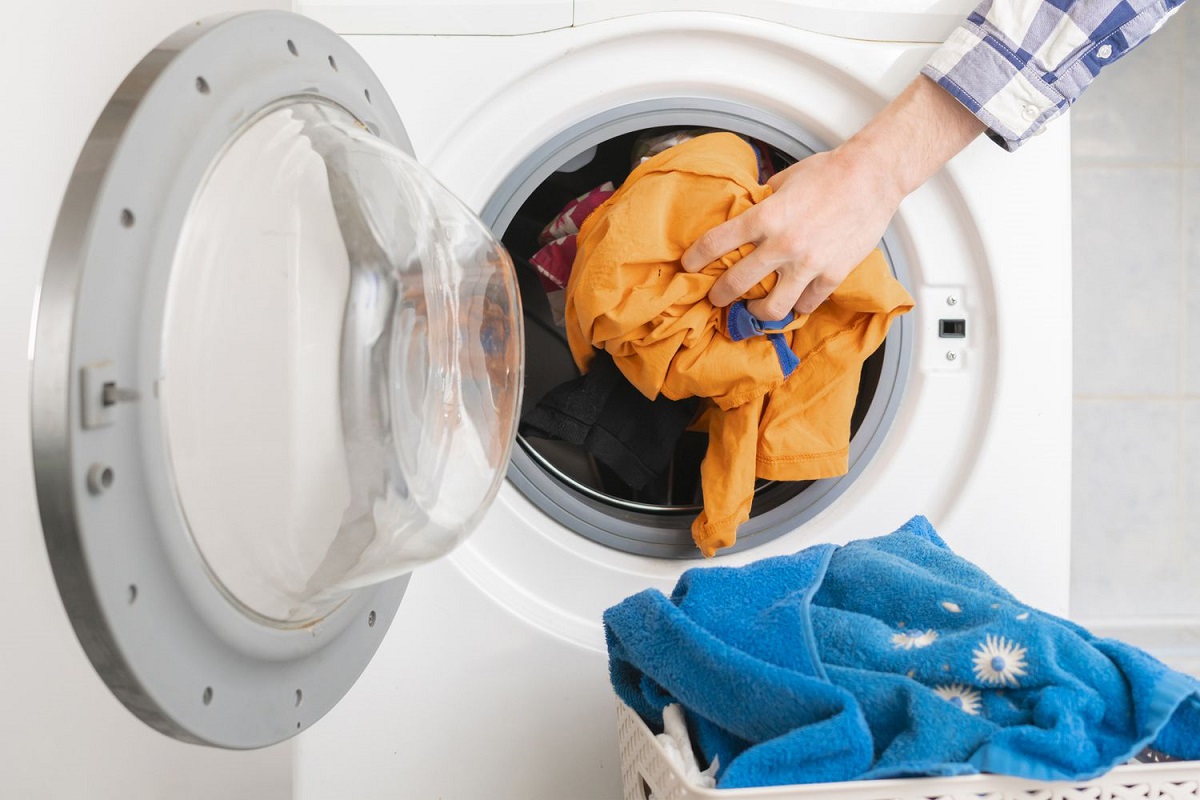Home>Home Appliances>Laundry Appliances>How Many Pounds Can A Washing Machine Hold


Laundry Appliances
How Many Pounds Can A Washing Machine Hold
Published: February 21, 2024
Discover the weight capacity of laundry appliances. Find out how many pounds a washing machine can hold and choose the right model for your needs. Explore now!
(Many of the links in this article redirect to a specific reviewed product. Your purchase of these products through affiliate links helps to generate commission for Storables.com, at no extra cost. Learn more)
The Capacity of a Washing Machine
The capacity of a washing machine refers to the maximum weight of dry laundry that can be loaded into the drum for a single wash cycle. It is typically measured in pounds or kilograms and is an important consideration when purchasing a new washing machine. Understanding the capacity of a washing machine is crucial for ensuring that it can accommodate your laundry needs efficiently.
When shopping for a washing machine, you will often come across terms such as "large capacity" or "extra-large capacity." These designations are indicative of the machine's ability to handle varying load sizes. The capacity of a washing machine can range from compact models that hold around 6-7 pounds of laundry to larger, high-capacity units that can accommodate 12-20 pounds or more.
The capacity of a washing machine directly impacts its performance and efficiency. Overloading a washing machine can lead to poor cleaning results, increased wear and tear on the appliance, and potential damage to the laundry items. On the other hand, underloading the machine may result in inefficient water and energy usage, leading to unnecessary expenses.
Understanding the capacity of your washing machine is essential for optimizing its performance and ensuring that your laundry is cleaned effectively. By adhering to the recommended weight limits and making informed decisions about load sizes, you can maximize the efficiency and longevity of your washing machine while achieving outstanding cleaning results.
Key Takeaways:
- Don’t overload or underload your washing machine! Follow the weight limits to avoid poor cleaning, damage to clothes, and unnecessary expenses. Balance is key for efficient and effective laundry.
- Maximize your washing machine’s capacity by distributing loads evenly, using high-efficiency detergents, and choosing appropriate wash programs. Take care of your machine to ensure long-lasting performance.
Factors Affecting the Weight Limit of a Washing Machine
The weight limit of a washing machine is influenced by several key factors that play a crucial role in determining the maximum load capacity for each wash cycle. Understanding these factors is essential for effectively utilizing the appliance and maintaining its optimal performance. Here are the primary considerations that impact the weight limit of a washing machine:
-
Physical Size of the Drum: The size of the washing machine's drum directly affects its weight limit. Larger drums have a higher weight capacity, allowing them to accommodate more laundry per cycle. Compact or smaller-sized washing machines typically have a lower weight limit due to their reduced drum capacity.
-
Motor Power and Agitation: The motor power and agitation mechanism of a washing machine contribute to its ability to handle heavier loads. Machines with robust motors and advanced agitation systems are designed to manage larger quantities of laundry effectively, thereby offering a higher weight limit.
-
Structural Integrity and Suspension: The structural design and suspension system of a washing machine are critical factors in determining its weight limit. Well-built machines with sturdy internal components and reliable suspension can support heavier loads without compromising performance or durability.
-
Water and Energy Efficiency: Modern washing machines are engineered for optimal water and energy efficiency. The weight limit is often influenced by the machine's ability to maintain efficient resource utilization while delivering exceptional cleaning results. This balance ensures that the appliance can handle substantial loads without excessive water or energy consumption.
-
Program and Cycle Selection: Different wash programs and cycle settings may have varying weight limits based on the intensity and duration of the selected cycle. For instance, a delicate cycle may have a lower weight limit compared to a standard or heavy-duty cycle, as it requires gentler treatment of the laundry items.
-
Manufacturer's Specifications and Recommendations: Manufacturers provide specific weight limits for their washing machines based on extensive testing and engineering standards. Adhering to these guidelines is crucial for preserving the appliance's performance, minimizing wear and tear, and ensuring the longevity of the machine.
Understanding these factors is essential for making informed decisions regarding the weight limit of a washing machine. By considering these elements, users can optimize the appliance's capabilities, enhance laundry efficiency, and prolong its operational lifespan.
Overloading and Underloading a Washing Machine
Overloading and underloading a washing machine can have significant implications for its performance, efficiency, and longevity. Understanding the potential consequences of these practices is essential for maintaining the appliance and achieving optimal cleaning results.
Overloading
When a washing machine is overloaded, the drum is packed with more laundry than its designated capacity. This can lead to several adverse effects, including:
-
Poor Cleaning Results: Overloading the washing machine restricts the movement of the laundry items during the wash cycle. As a result, the detergent and water may not distribute evenly, leading to inadequate cleaning. Certain areas of the overloaded drum may not receive sufficient agitation, resulting in unclean or soiled spots on the laundry.
-
Increased Wear and Tear: The excessive weight and strain on the washing machine's components can accelerate wear and tear. The motor, suspension system, and drum bearings may experience heightened stress, potentially leading to premature damage and malfunctions.
-
Potential Damage to Laundry: Overloading can cause excessive friction and compression among the laundry items, leading to fabric damage, stretching, or distortion. Delicate garments are particularly susceptible to harm when subjected to an overloaded wash cycle.
Underloading
Conversely, underloading a washing machine involves washing a significantly smaller load than its recommended capacity. This practice can result in the following issues:
-
Inefficient Water and Energy Usage: When a washing machine is underloaded, it may consume more water and energy than necessary. The appliance's sensors and algorithms are designed to optimize resource utilization based on the load size. Underloading disrupts this balance, leading to wasteful consumption.
-
Imbalanced Spin Cycles: Underloaded wash loads may cause the washing machine's drum to become unbalanced during the spin cycle. This imbalance can result in excessive vibrations, noise, and potential damage to the appliance.
-
Suboptimal Cleaning Performance: Inadequate load sizes can impact the effectiveness of the wash cycle, as the detergent and water ratios may not align with the machine's design parameters. This can lead to subpar cleaning results and the inefficient removal of stains and odors from the laundry.
Finding the Balance
To maximize the efficiency and longevity of a washing machine, it is crucial to find the optimal balance in load sizes. Adhering to the recommended weight limits, as specified by the manufacturer, ensures that the appliance operates within its intended capacity. By avoiding overloading and underloading, users can maintain the washing machine's performance, minimize wear and tear, and achieve exceptional cleaning outcomes with each wash cycle.
Tips for Maximizing the Weight Capacity of a Washing Machine
-
Distribute the Load Evenly: When loading the washing machine, distribute the laundry items evenly around the drum. This helps maintain balance during the wash cycle, preventing excessive vibrations and potential damage to the appliance.
-
Refer to the Manufacturer's Guidelines: Familiarize yourself with the manufacturer's recommended weight limits for your specific washing machine model. Adhering to these guidelines ensures optimal performance and prolongs the appliance's lifespan.
-
Utilize High-Efficiency Detergents: Using high-efficiency detergents allows for effective cleaning while requiring smaller amounts of detergent per load. This facilitates the washing of larger loads within the machine's weight capacity.
-
Pre-Treat Stains and Soiled Areas: Addressing stains and heavily soiled areas before loading the laundry into the machine can reduce the need for additional wash cycles. This enables more efficient use of the washing machine's weight capacity.
-
Select Appropriate Wash Programs: Choose the appropriate wash programs based on the type and size of the load. Utilize heavy-duty cycles for larger loads and delicate cycles for smaller, more delicate items, ensuring optimal cleaning results within the weight capacity.
-
Maintain the Washing Machine: Regular maintenance, including cleaning the drum and ensuring proper alignment of the appliance, contributes to its efficient operation. A well-maintained washing machine can consistently handle its designated weight capacity.
-
Avoid Overstuffing Bulky Items: While it may be tempting to maximize each load, avoid overstuffing the washing machine with bulky items such as comforters and large blankets. This practice can exceed the weight limit and compromise cleaning effectiveness.
-
Monitor Water Levels: Be mindful of the water levels during the wash cycle, especially when dealing with larger loads. Ensuring that the water adequately covers the laundry items contributes to thorough cleaning within the machine's weight capacity.
-
Consider Load Size and Fabric Type: Take into account the fabric type and weight when determining the load size. Lighter fabrics may allow for larger loads within the weight limit, while heavier fabrics may necessitate smaller loads to maintain optimal cleaning performance.
-
Regularly Inspect the Suspension System: Periodically inspect the washing machine's suspension system to ensure it is functioning correctly. A well-maintained suspension system supports the weight capacity and minimizes wear on the appliance.
By implementing these tips, users can effectively maximize the weight capacity of their washing machines, optimizing cleaning efficiency and prolonging the appliance's operational durability.
Frequently Asked Questions about How Many Pounds Can A Washing Machine Hold
Was this page helpful?
At Storables.com, we guarantee accurate and reliable information. Our content, validated by Expert Board Contributors, is crafted following stringent Editorial Policies. We're committed to providing you with well-researched, expert-backed insights for all your informational needs.















0 thoughts on “How Many Pounds Can A Washing Machine Hold”